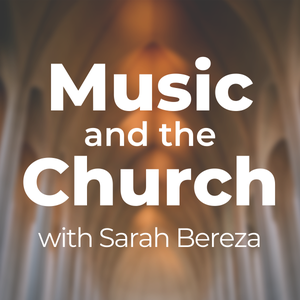Flaming? An Interview with Author Dr. Alisha Lola Jones
Listen in for an in-depth interview with Dr. Alisha Lola Jones about her new book Flaming?: The Peculiar Theopolitics of Fire and Desire in Black Male Gospel Performance.
Resources:
Dr. Alisha Lola JonesAlisha on Twitter, Facebook, and InstagramFlaming?: The Peculiar Theopolitics of Fire and Desire in Black Male Gospel Performance by Alisha Lola Jones (hardcover and paperback, Kindle, Nook)
More about Flaming?
Here's a longer description of Flaming?: The Peculiar Theopolitics of Fire and Desire in Black Male Gospel Performance by Alisha Lola Jones:
Male-centered theology, a dearth of men in the pews, and an overrepresentation of queer males in music ministry: these elements coexist within the spaces of historically black Protestant churches, creating an atmosphere where simultaneous heteropatriarchy and "real" masculinity anxieties, archetypes of the "alpha-male preacher", the "effeminate choir director" and homo-antagonism, are all in play. The "flamboyant" male vocalists formed in the black Pentecostal music ministry tradition, through their vocal styles, gestures, and attire in church services, display a spectrum of gender performances - from "hyper-masculine" to feminine masculine - to their fellow worshippers, subtly protesting and critiquing the otherwise heteronormative theology in which the service is entrenched. And while the performativity of these men is characterized by cynics as "flaming," a similar musicalized "fire" - that of the Holy Spirit - moves through the bodies of Pentecostal worshippers, endowing them religio-culturally, physically, and spiritually like "fire shut up in their bones".
Using the lenses of ethnomusicology, musicology, anthropology, men's studies, queer studies, and theology, Flaming?: The Peculiar Theo-Politics of Fire and Desire in Black Male Gospel Performance observes how male vocalists traverse their tightly-knit social networks and negotiate their identities through and beyond the worship experience. Author Alisha Jones ultimately addresses the ways in which gospel music and performance can afford African American men not only greater visibility, but also an affirmation of their fitness to minister through speech and song.
Enjoying this podcast episode? Click here to find other Music and the Church episodes, or subscribe to the show wherever you listen to podcasts.
10 August 2020, 5:52 am
